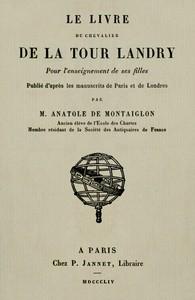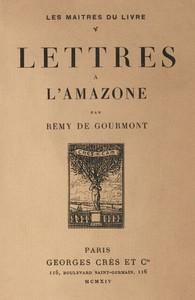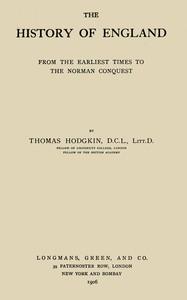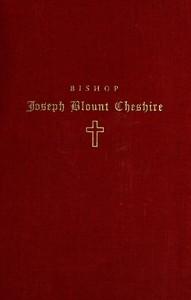|
|
Read this ebook for free! No credit card needed, absolutely nothing to pay.Words: 96077 in 18 pages
This is an ebook sharing website. You can read the uploaded ebooks for free here. No credit cards needed, nothing to pay. If you want to own a digital copy of the ebook, or want to read offline with your favorite ebook-reader, then you can choose to buy and download the ebook.

: Le livre du chevalier de La Tour Landry pour l'enseignement de ses filles by La Tour Landry Geoffroy De Montaiglon Anatole De Editor - Young women Conduct of life Early works to 1800; Christian women Conduct of life Early works to 1800@FreeBooksThu 08 Jun, 2023 Religious controversy, though it often degenerates from that calm and dignified character, which it should ever sustain as a mutual search after truth, seems sometimes to be necessary and proper. It springs out of the nature of that moral evidence, never amounting to demonstration, by which religious doctrines are sustained, and from the fact, that whilst the word of God reveals what is necessary to salvation with entire distinctness, it leaves undecided, or to be deduced from clearer passages of Scripture, many points which are both interesting and important, as well as naturally sought for by the constitutional, systematizing tendencies of the human mind. Discussions on such topics of practical utility, are alike pleasing to God and beneficial to the church, if conducted in a Christian spirit, and if the parties have truth and not victory for their aim. Truth is the will of God, exhibited in the diversified creations of his hand, either physical, intellectual, or moral, and the revelations of his word, correctly apprehended by the human mind. Since truth, therefore, is of God, it need fear no investigation. The divinity that is in it, will secure its ultimate triumph. Though it may for a season be obscured, or crushed to earth by passion, prejudice, or irresponsible authority, it will sooner or later assert its rights, and secure the homage of all upright minds. No friend of truth should dread impartial investigation. If he has unconsciously imbibed erroneous opinions, he will thus be conducted to the truth; and if his views are correct, they will be confirmed by investigation. "Eternal vigilance has been styled the price of civil 'liberty;'" and to "search the Scriptures daily," to "prove all things and hold fast that which is good," is the grand safeguard of religious truth and ecclesiastical purity. No new enterprise of Christian benevolence has ever been achieved, no reformation of established institutions or doctrines ever been accomplished in the church of Christ, without discussion and controversy either oral or written; because error when assailed by the truth, will always make more or less resistance. The life of the greatest moral hero of the sixteenth century, to whom Christianity is so hugely indebted, was almost entirely expended in controversial efforts; and even the mild and peace-loving Melancthon, though he advised his aged mother not to trouble herself about religious controversies, himself felt it his duty to devote much of his time, his learning, and his talents to the vindication of the truth against its enemies. We are commanded "earnestly to contend for the faith once, delivered to the saints," and by inference for those regulations, which tend to secure that faith. We are taught to pray for the unity of the disciples of Christ, "that they may be one as He and the Father are one," and consequently to oppose such regulations as tend to sever the bonds of union among God's people, and cause divisions in the household of Christ. Such means for defending the faith, are creeds which inculcate only those doctrines clearly taught in Scripture; such hindrances to union and apples of discord, are creeds embracing many minor points, not clearly decided in Scripture, on which true Christians differ, and which are not necessary for cordial co-operation among the children of God. In order that our readers may follow, with advantage, the reasonings of this treatise, it is necessary that we should conduct them to the proper stand-point, from which the interesting and important subject before us should be examined. The same object, viewed from different positions, often presents a very different appearance; but contemplated from the same point of observation, by impartial observers of sound vision, it will, by the laws of our organization, appear the same to all. The questions before us relate to the meaning of certain documents, which were adopted some centuries ago in a foreign land and foreign tongue, as a creed or test of membership in the church. A very brief glance at this church, the authority of human creeds, and the circumstances under which this one was published, will prepare us for the more satisfactory solution of the points in question. In the fourth century, the Council of Nice adopted a creed, which is but a paraphrase of the above, following the order of its subjects, and adding various specifications to repel heresies which had arisen. Yet even this does not amount to one page in the Definite Platform. Near the close of the fifth, or perhaps in the sixth century, the so-called Athanasian Creed was adopted, which would form less than three pages of the Platform. During the subsequent, centuries of Romish corruption, different councils made various enactments for the church, but they generally related to the multitudinous rites and ceremonies introduced into the popish worship, or to the functions, rights and privileges of the pope, the different ranks of priests, bishops, arch-bishops and the inferior officers; and in the progress of time, men were allowed to adopt almost any error, provided they paid their dues to the priests, and performed the superstitious ceremonies of the church. Note 1. In 1529, whilst Melancthon was attending the Conferences at Spire, this great and good man made a little excursion to Bretton, to visit his mother. During their interview, she asked him what she should believe amid so many disputes, and repeated to him her prayers, which were free from superstition. "Go on, mother," said he, "to believe and to pray as you have done, and never trouble yourself about religious controversies." In replying to the general observations, which constitute the introduction of the Plea, we shall pursue the order of their occurrence. Here, then, we perceive, that those ultra Lutherans of our day, who insist on the whole mass of former symbols as essential to Lutheranism, must unchurch a very large portion of the Lutheran Church even of the sixteenth century. But among these we can by no means class the author of the Plea, who is evidently a Lutheran of the more enlightened and liberal class. Again, says the Plea: "Those who undertake to change the doctrinal basis of a church, take upon themselves an awful responsibility," p. 7. True; but there is an equally awful responsibility resting on those who, favored by Providence with the increased light of three centuries, continue to avow in their creed, and thus lead multitudes to embrace the superstitious and truly dangerous errors, which remain in these documents issued in the earlier and immature stages of the Reformation, and some of them under circumstances unpropitious to a free expression of views of Scripture doctrine. If these errors constituted the essence of Lutheranism, we ought to forsake the church; but as they do not, we are under sacred obligation to expunge them from our creed, so that we may not aid in their perpetuation. "We believe," says the Plea, "that they are no more than guides to the fountain of truth, to the gospel; and whenever we find that they lead us off from the Word of God, we are bound not to hesitate in our decided deviation from their views." p. 8. This is precisely the noble, enlightened, and christian stand point of the American Lutheran Church. In principle, the respected author of the Plea, does not differ from us. It is only in its application to particular cases, that we may occasionally not coincide. "If all Christianity were to take its first start to-day;-to-morrow already interpretations and confessions would spring up like mushrooms in a hot-bed." p. 11. This idea is expressed rather too strongly for the claims of history; as it is certain that during the golden era of Christianity, the first three centuries, no other creeds were employed by the churches generally, than the so-called Apostles' and the Nicene Creeds. It is chiefly since the period of the Reformation, that the church of the Redeemer has been cut up into so many denominations, professing different and some of them very extended creeds. Yet this work was circulated throughout the church, and we never heard a single word of objection, although the notes appended to it are far from being symbolic. "ON REGENERATION.--We believe that the Scriptures teach that regeneration is the act of God, the Holy Ghost, by which, through the truth, the sinner is persuaded to abandon his sins and submit to God, on the terms made known in the gospel. This change, we are taught, is radical and is essential to present peace and eternal happiness. Consequently, it is possible, and is the privilege of the regenerated person to know and rejoice in the change produced in him." "OF THE SYMBOLICAL BOOKS.--Luther's Larger and Smaller Catechisms, the Formula Concordiae, Augsburg Confession, Apology, and Smalkald Articles are called in Germany the Symbolical Books of the church. We regard them as good and useful exhibitions of truth, but do not receive them as binding on the conscience, except so far as they agree with the Word of God." Free books android app tbrJar TBR JAR Read Free books online gutenberg More posts by @FreeBooks
: Lettres à l'Amazone by Gourmont Remy De Vibert P E Pierre Eug Ne Illustrator - Authors French Correspondence; Gourmont Remy de 1858-1915 Correspondence; Barney Natalie Clifford 1877-1972 Correspondence; Critics France Correspondence@FreeBooksThu 08 Jun, 2023

: The history of England from the earliest times to the Norman Conquest by Hodgkin Thomas Hunt William Editor Poole Reginald Lane Editor - Great Britain History To 1066@FreeBooksThu 08 Jun, 2023
|
Terms of Use Stock Market News! © gutenberg.org.in2025 All Rights reserved.






